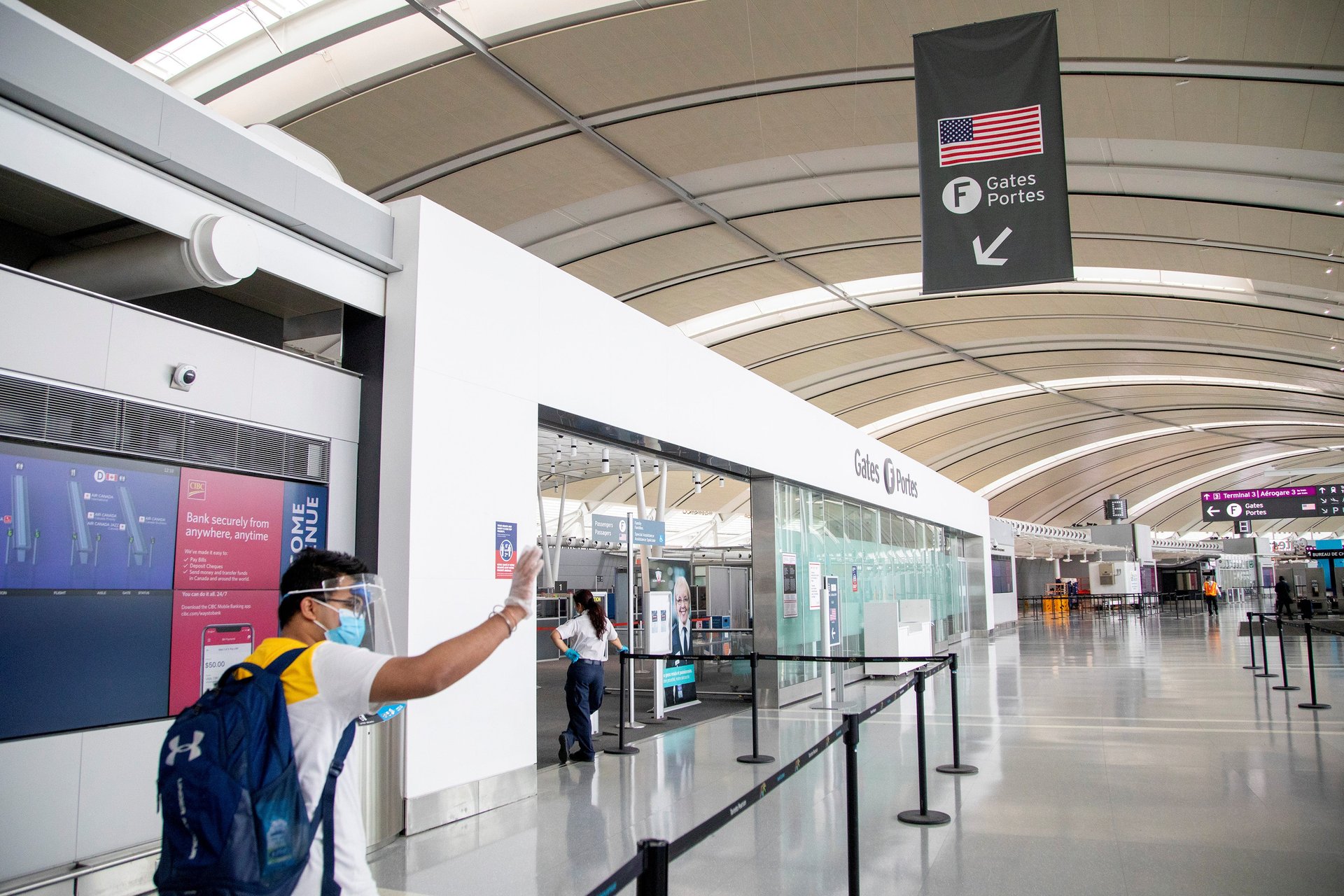Employers are offshoring jobs to get around US visa restrictions
President Donald Trump has been trying to encourage firms to hire more American workers by increasing restrictions on visas for skilled foreign workers, including by suspending the H-1B visa program in June.


President Donald Trump has been trying to encourage firms to hire more American workers by increasing restrictions on visas for skilled foreign workers, including by suspending the H-1B visa program in June.
But a new study found that blocking out skilled labor actually encourages companies to move jobs abroad, where they can hire locally or more easily obtain a visa. That means more new jobs in countries like Canada, India, and China, not in the US, as president Donald Trump has claimed.
“It’s not that a company really only has two options, which is either hire an immigrant in the US or hire an American in the US,” said Britta Glennon, the National Bureau of Economic Research economist who wrote the study. “They actually have more options than that. If you’re going to have this discussion, it needs to acknowledge that.”
Glennon looked at data from millions of H1-B applications and multinationals’ employment in foreign countries over a 10-year period to track whether less access to visas changed hiring practices. She found that it did, whether it was because the US lowered its annual visa cap (as it did in 2004,) or because visas became harder to get after US Citizenship and Immigration Services implemented a lottery system to grant them.
When she looked at the lottery’s effects, for example, she found that for each visa application denied, companies created the equivalent of .3 jobs abroad, at least.
Companies in the tech sector were more likely to hire a foreign worker at their offices outside the US. They were also more likely to place those workers in Canada, which has less restrictive visa policies than the US, as well as India and China, where many of the hires were from.
When USCIS denied a visa to a prestigious MBA graduate from China or India, the company trying to hire them would often assign them to an auxiliary office in cities like Vancouver or Toronto. “In the Canada case, it’s likely to be the exact same person,” said Glennon, who is also an assistant professor at the Wharton School of Business.
Some companies reacted by transferring entire teams or tasks abroad. “They would say, ‘Yeah, we just decided to open up a foreign affiliate in India because we got so tired of this whole process. And so now we just have a team, they’re doing a lot of the stuff that we would have had them doing in the US,'” she said.
She also saw a shift towards job candidates with master’s degrees to increase the chances of getting them a visa—there’s an additional cap of 20,000 for H1-B visas for applicants with advanced degrees.
Though Glennon’s analysis focused on past changes to visa policies, her research suggests the same situation is true now that US government restrictions on foreign workers are even tighter. “Companies are definitely doing the Canada thing and being increasingly open about it,” she said. Firms like Duolingo, Carbonite, and Cisco have utilized this strategy or plan to implement it in response to US immigration policies.
By blocking immigration, the US misses out on other benefits, like new patents, additional foreign investment, and new jobs in highly-skilled fields, Glennon said. Research has also shown immigrants are much more likely to start new companies compared to Americans—nearly half of Fortune 500 firms were founded by an immigrant or a child of one—and are more often “job creators” than “job takers.”
Glennon said a better policy to help Americans get jobs would be through additional investments in education. “Make sure that Americans have the right set of skills,” she said. “It’s a much more sensible way to go about this than trying to block skilled workers from other countries. The reason why they’re getting hired is because companies can’t find Americans to do those jobs.”